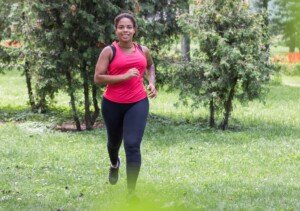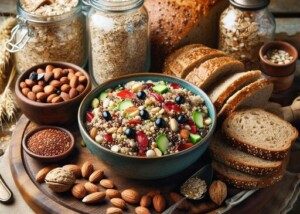
If you have diabetes and engage in cardio exercise, perhaps you’ve been wondering what you should eat, and what you shouldn’t, right afterward.
Many people with diabetes engage in aerobic type exercise as part of their management plan for controlling blood sugar levels.
Any kind of cardo workout is strongly recommended for the management of both type 1 and type 2 diabetes.
This is doctors’ orders: Exercise is crucial for diabetes management, especially when weight loss in an overweight patient can help improve the condition.
“Whether or not a person with diabetes should eat after a workout depends on a lot of factors including duration of activity and blood glucose level,” explains Alison Massey, MS, RD, LDN, registered dietitian and certified diabetes educator with over 10 years of experience in various community and clinical settings.
“They may or may not need to incorporate a snack. If someone is simply taking a 30 minute walk and working on weight loss, a snack after the workout may not be appropriate,” unless it’s something low in calories but high in nutritive value such as an apple, pear, peach, or a cup of unsweetened kefir (a probiotic drink that’s essentially drinkable yogurt).
“On the other hand, if someone is training for a half marathon they may need to carefully consider post-workout recovery snacks,” explains Massey.
“A snack containing carbohydrates and protein is a good post-workout option for those individuals who need something.”
Examples: hard boiled egg with bowl of fruit; tossed green salad with nuts and bits of chicken mixed in; handful of nuts with serving of wild or brown rice; tuna or chicken salad on whole grain bread.
If the diabetic begins feeling that their blood sugar level is taking a dive soon after their aerobic workout, then of course, a quick-acting carb like whole fruit (and better yet, juice) is called for.
But to eat something simply for the sake of “I just did 30 minutes of cardio exercise” is not a good enough reason for a diabetic who’s trying to lose weight.










































